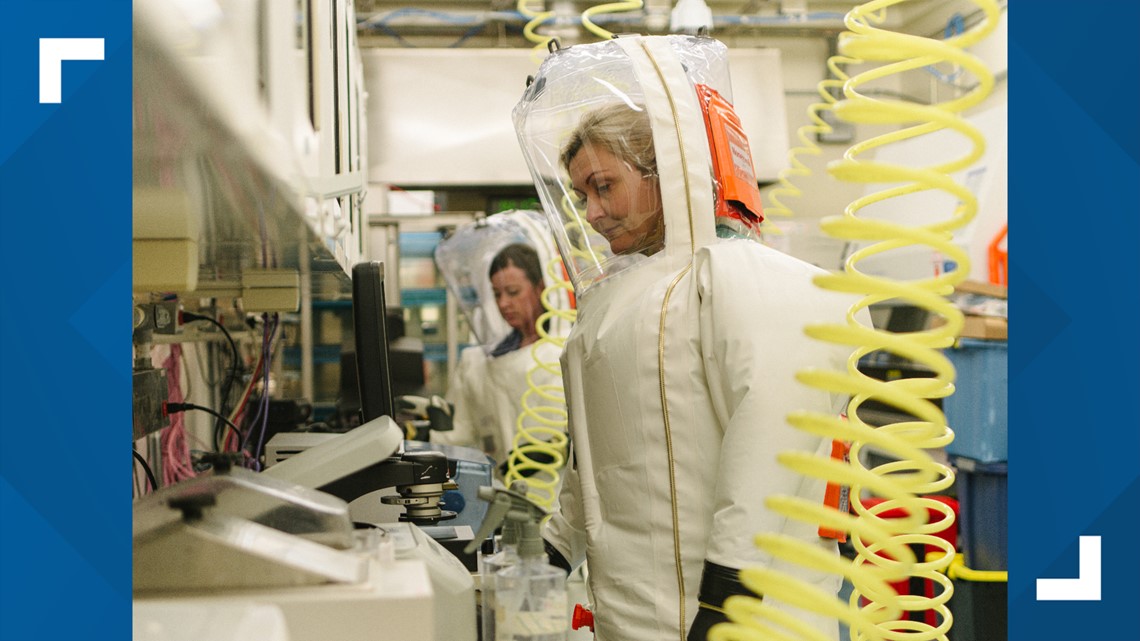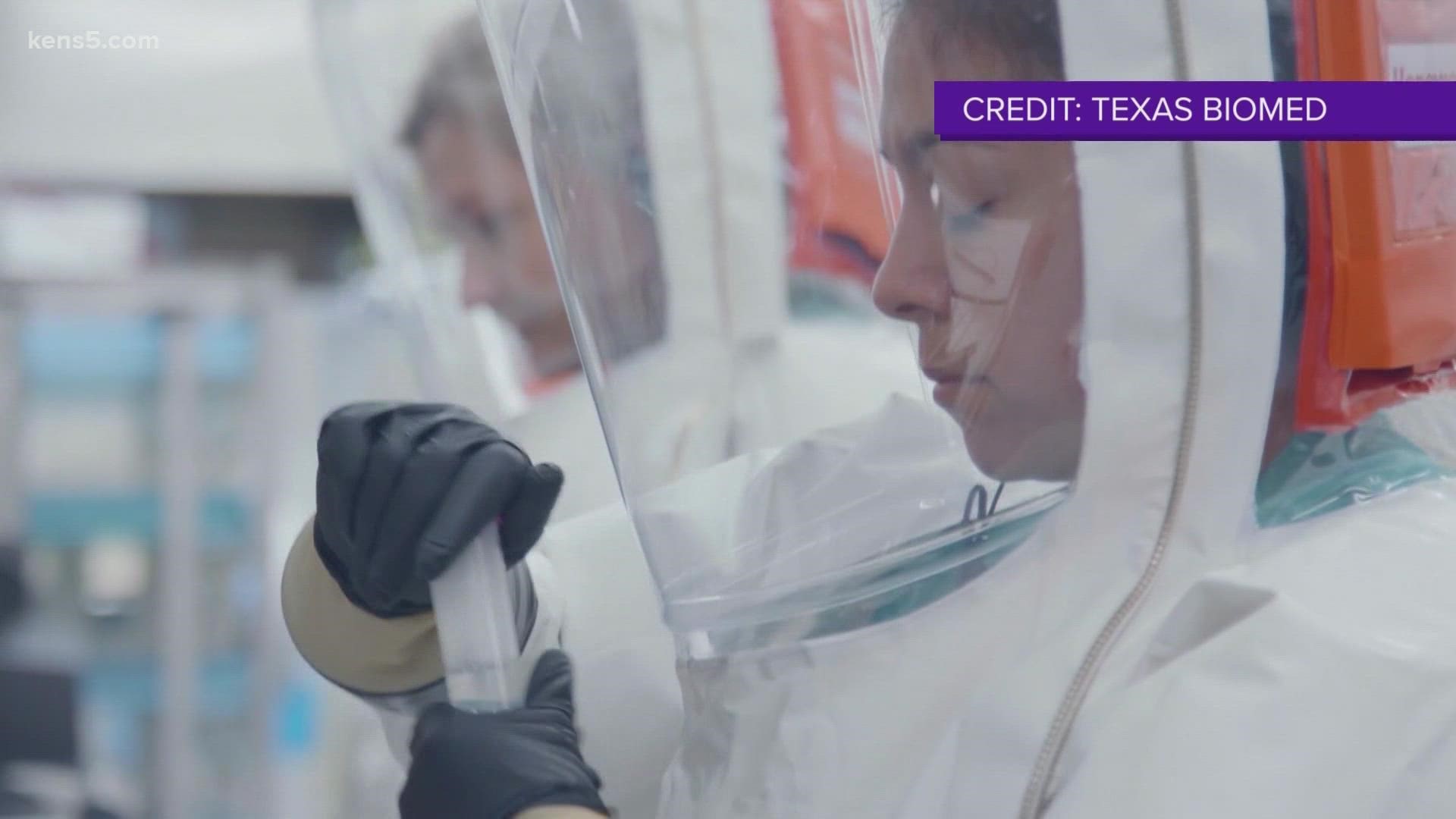SAN ANTONIO — As the world works to emerge from a nearly two-year COVID-19 pandemic, a team of scientists at the Texas Biomedical Research Institute are studying another emerging virus that can kill up to 75% of people it infects. They said they’ve made significant strides in their first year of work to develop treatments and get out in front of the next potential public health crisis.
KENS 5 spoke with Dr. Olena Shtanko, a staff scientist at Texas Biomedical Research Institute about her team’s research of the Nipah virus and how they’re working to better understand it.
She explained that the virus is a respiratory pathogen like COVID-19. The virus is transmitted from animals to humans, and there has also been documentation of human-to-human transmission. The disease can cause a variety of reactions including brain swelling, coma and even death.
According to the World Health Organization, the virus can kill 40% to 75% of people who get infected.
“If you ask epidemiologists and virologists to put their bets, Nipah would definitely be on the list of pathogens that could be the next pandemic,” Shtanko said. “What we have learned from the COVID-19 pandemic (is) we cannot just sit and wait and wait while it becomes the next pandemic.”


Researchers are using a software called Rhodium that can screen thousands of known compounds and molecules. It can tell which ones might bind to the Nipah virus, allowing them to develop ways of preventing it from binding to human cells.
According to Texas Biomed, Rhodium identified about 35 host compounds, which were then synthesized by chemists at the Center for Innovative Drug Discovery (CIDD).
“The CIDD provides a diverse array of drug discovery core facilities and expertise to facilitate the translation of basic scientific discoveries into tangible pre-clinical candidate drugs,” stated Dr. Stanton McHardy, the center’s director, in a press release from Texas Biomed. “We are excited to bring our unique resources and skills and work collaboratively to find a drug for such an understudied disease before it becomes a global emergency.”
Over the next year, Texas Biomed says it will be able to test the virus and compounds in brain organoids, which are artificially grown organs resembling the human brain. The organization said this research is a collaborative effort with Southwest Research Institute, University of Texas at San Antonio and the University of Texas Health Science Center at San Antonio.
The funding for the research is from the San Antonio Partnership for Precision Therapeutics (SAPPT). The program provided a $200,000 grant for two years. If you would like to read more about Texas Biomed's research on Nipah, click here.

